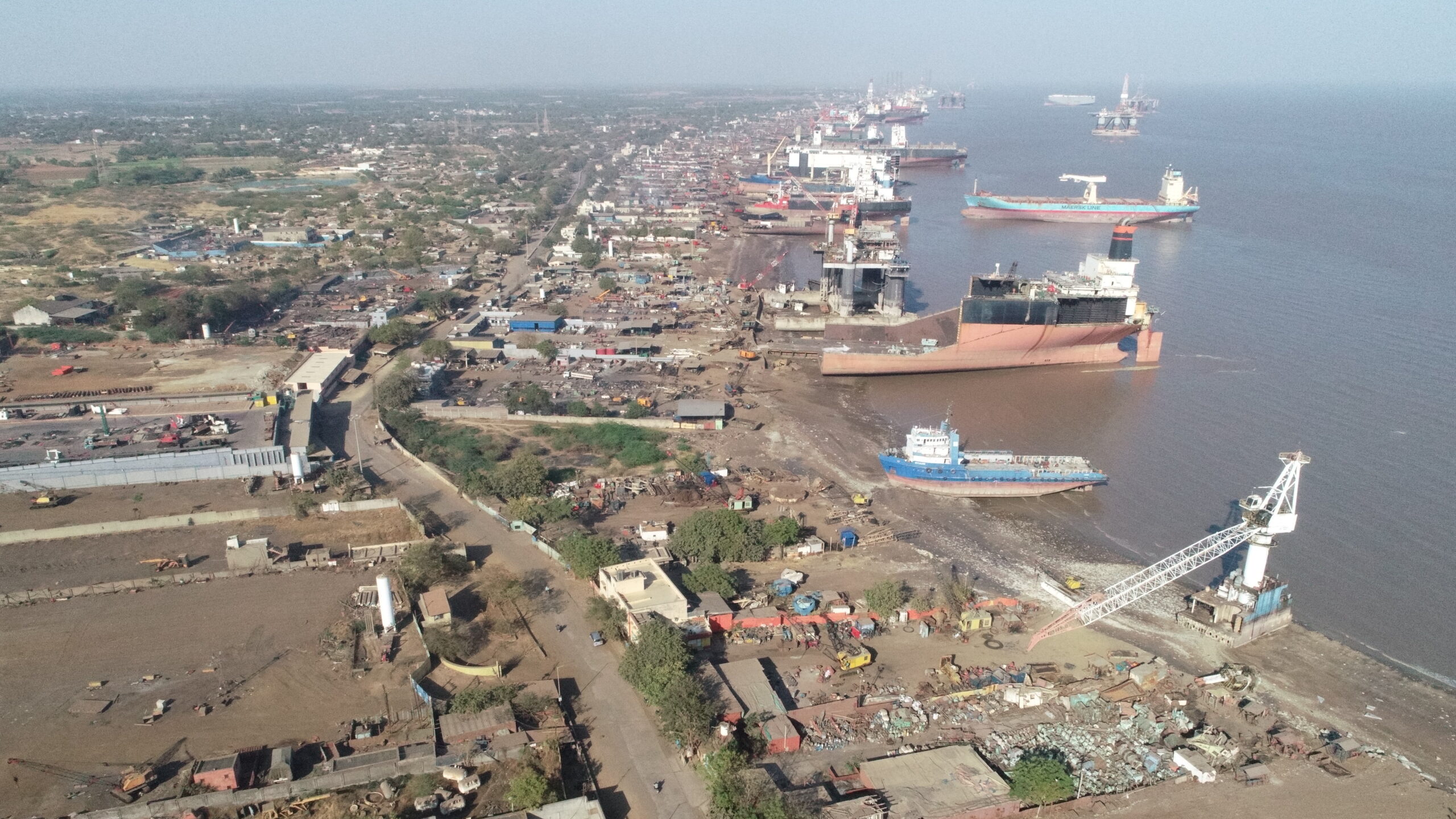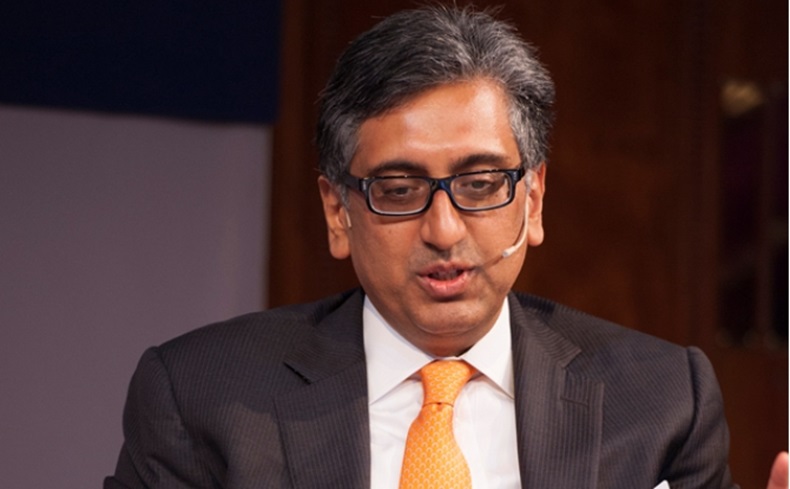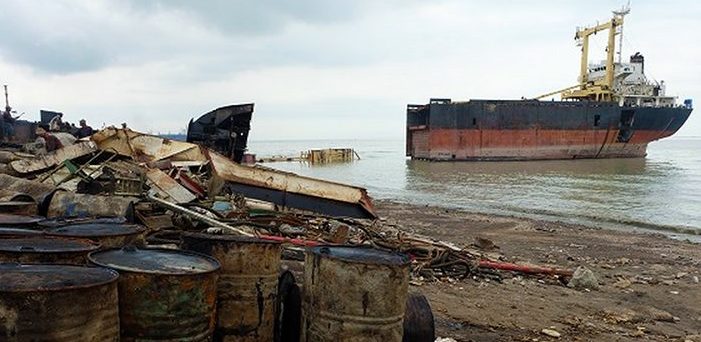Ship Recycling: Recycling prices at yards on the Indian subcontinent have fallen by up to 25% over the past year: STAR ASIA
2024 saw the total number of vessels sold for recycling at 357, this is almost 100 vessels compared to the 2023 total and a third of the number at the end of 2021 (the total vessels sold in 2021 was 1018).

The recent uncertainty surrounding trade wars, tariffs, sanctions, and an increasingly aggressive U.S. foreign policy has unsettled shipping markets, leading to a sharp decline in freight rates. The Baltic Dry Index has plummeted to its lowest level in nearly two years, with further drops recorded at the start of the week. Some analysts suggest that older vessels, which have continued earning well in strong markets, may soon reach the end of their operational lifespan.
However, shipowners hoping to secure a strong residual value for these ageing assets may be disappointed, as recycling prices at yards on the Indian subcontinent have fallen by up to 25% over the past year. Previously, fetching over US$ 600 per LDT, prices have now dropped to around US$ 470, with indications of further declines ahead.
Compounding these challenges, OECD-based shipowners must navigate the EU’s stringent Ship Recycling Regulation, which has yet to approve any yards in the Indian subcontinent, despite several meeting the standards of the IMO’s Hong Kong Convention.
Meanwhile, broader industry concerns are emerging around stranded assets, with a report from UCL’s Energy Institute warning that a combination of stricter greenhouse gas regulations and the global transition to low-carbon energy could leave many vessels obsolete. As carbon-intensive ships face declining demand, the shipping sector may encounter both supply and demand risks, marking a pivotal moment for industry stakeholders.
Alang
As January comes to a close at the start of the year of snake, markets remain quiet with little activity to boost. 1 vessel was recorded this week for sale with levels seen to be around US$ 460 per LDT mark.
Meanwhile, the global waste management industry faces significant changes as new EU regulations, particularly the European Waste Shipment Regulations (EWSR), reshape international trade patterns.
India, as a major importer of EU scrap materials, must seek European Commission approval by February 21 to maintain its access to these vital recycling resources, with the Materials Recycling Association of India (MRAI) actively engaging with government ministries to ensure compliance.
The shifting landscape extends beyond Europe, with the US recycling industry facing market access challenges while Southeast Asian countries emerge as new recycling hubs following China’s restrictive waste policies. The industry’s future hinges on international cooperation and adaptation to evolving regulations, with successful navigation of these changes crucial for maintaining sustainable global recycling systems.
The Indian Union Budget announced on February 1, 2025, introduced several measures impacting the steel sector:
⦁ Increase in Customs Duty on Steel Imports: To protect domestic steel manufacturers from rising imports, the government has increased the basic customs duty on steel imports from 7.5% to 15%. This move aims to curb the influx of cheaper foreign steel, particularly from countries like China and Japan, which saw a 22% increase in steel exports to India in 2024.
⦁ National Green Steel Mission: The government has allocated Rs.15,000 crore (approximately US$1.74 billion) to launch the National Green Steel Mission. This initiative seeks to incentivize the production of low-carbon or ‘green’ steel, focusing on reducing.
emissions, promoting research and development, enhancing raw material efficiency, and encouraging banks to offer lower interest rates on renewable energy loans. The mission aligns with India’s commitment to achieving net-zero emissions by 2070.
⦁ Infrastructure Investment: The budget continues its emphasis on infrastructure development, which is expected to boost domestic steel consumption. Significant allocations have been made for urban housing, rural infrastructure, and road connectivity projects. The government aims to increase domestic steel manufacturing capacity to 300 million tons per year, up from 180 million tons at the end of FY24.
These measures reflect the government’s commitment to strengthening the domestic steel industry, promoting sustainable practices, and supporting economic growth through infrastructure development.
Chattogram, BANGLADESH
The Bangladesh ship recycling market remains stagnant, with no notable developments and growing concerns over the pending NOC requirements for non-green yards as the deadline draws near. The absence of an elected government has led to a slowdown in new projects, resulting in weak steel demand and subdued market sentiment.
Following December’s substantial restocking, the imported scrap market has stayed quiet, with buyers showing little interest in Australian shredded scrap offers at US$375- 380/t cfr Chattogram.
The current economic instability and inflationary pressures continue to dampen market activity, with this lull expected to persist until Ramadan in March.
Gadani, PAKISTAN
Pakistan’s imported scrap market continues to reflect the global slowdown, with the local rebar market maintaining prices at PKR 243,000-245,000/t ($871-878/t) ex-works, though moderate restocking activities provide some support to the market. Overall, the week has been characterised by minimal developments and subdued trading activity, reflecting the broader regional market sentiment.
Aliaga, Turkey
In the Turkish market, ship recycling prices remain at US$340/t delivered, against an uptick of more ships being offered for recycling.
However, Turkey’s underlying steel market fundamentals remain weak with prices dropping by US$6.
Sub-Continent and Turkey ferrous scrap markets insight
Mixed Trends in Sub-Continent Ferrous Scrap Markets Amid Global Price Movements
The Sub-Continent ferrous scrap markets exhibited mixed activity this week, with Turkey witnessing an uptick in prices driven by strong deals, particularly for US-origin HMS
(80:20). In contrast, India and Pakistan faced downward pressure, while Bangladesh remained relatively stable with slight improvements.
India: Market Holds Steady Amid Budget Caution
India’s imported scrap market remained largely stable, with no significant changes in prices or buying interest. Weak demand for finished steel products continues to weigh on sentiment, restricting any potential price appreciation.
Currently, open-origin HMS (80:20) is being offered at US$355-360/ton CFR Chennai, though a bid-offer disparity persists. Australian shredded scrap is being quoted at US$370-375/ton CFR, but buyers are countering at US$360-365/ton, signalling resistance to higher price levels.
According to a source from a North Indian steel mill, the presence of cheaper domestic scrap and ongoing liquidity constraints have led to more conservative purchasing behaviour.
Pakistan: Market Slows as EU-Origin Scrap Prices Decline
Pakistan’s imported ferrous scrap market saw reduced activity, with offers for EU-origin scrap softening.
A 2,000-tonne deal for EU-origin HMS mix was concluded at US$350/ton CFR Qasim, while 1,000 tons of shredded scrap from EU sources were booked at US$375/ton CFR Qasim.
Despite supplier attempts to push prices higher to US$380/ton CFR or above, buyers remain selective, focusing on securing high-quality materials from reputable sources. Overall, sentiment in the Pakistani market remains cautious, reflecting economic uncertainty and cautious purchasing strategies.
Bangladesh: Pre-Ramadan Demand Supports Steady Prices
The Bangladeshi imported scrap market saw slight improvements, as mills evaluated offers more actively in preparation for the upcoming pre-Ramadan stocking period.
While day-on-day price movements remained largely unchanged, mills continued inquiries for cheaper materials from near-shore suppliers, indicating strategic purchasing ahead of seasonal demand shifts.
Turkey: Rising Prices Amid Strong US-Origin Deals
Turkey’s ferrous scrap market saw a noticeable price increase, supported by multiple transactions that strengthened seller sentiment. A US-origin HMS (80:20) deal was reported at US$349/ton CFR, while Shredded & PNS cargoes were priced at US$369/ton CFR.
Indicative tradable values for US/Baltic-origin HMS (80:20) ranged between US$340- 345/ton CFR. A flurry of transactions pushed prices higher, with US/Baltic-origin HMS (80:20) reaching US$350-360/ton CFR, while EU-origin material traded at US$340- 345/ton CFR.
Author: shipping inbox
shipping and maritime related web portal








